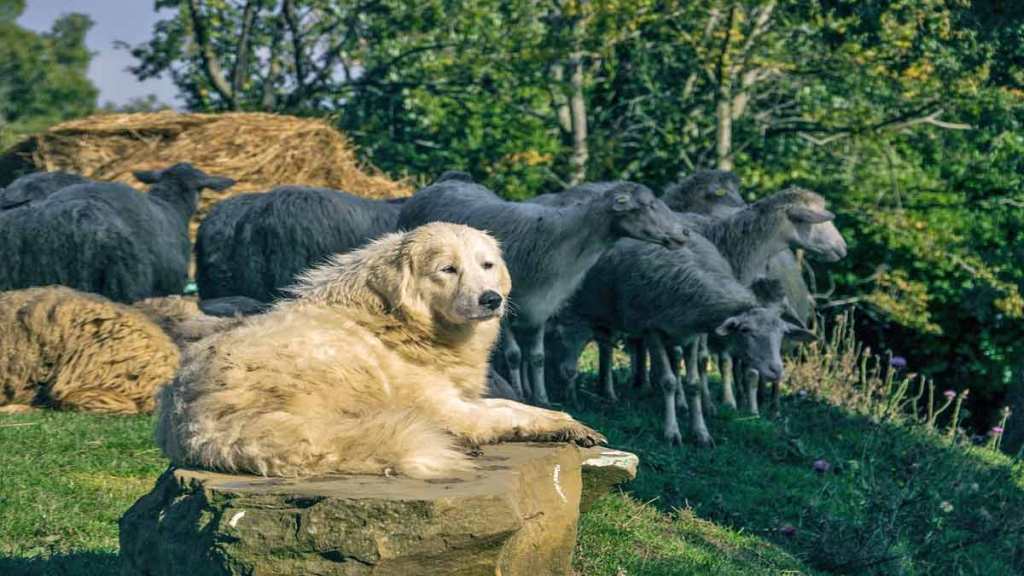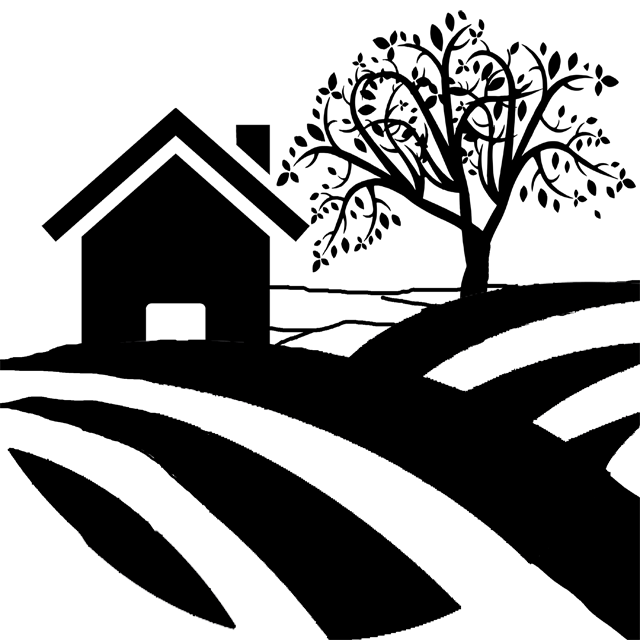
Many small farms and homesteads can benefit from a livestock guardian to keep their animals safe. Sheep, goats, and poultry are particularly prone to predators and need some protection.
Probably the most common livestock guardian animal is the dog. However, farmers have many other guardian animals to choose from, each with its own set of advantages and disadvantages.
Here are some of your options.
Dogs
Dogs are a natural choice of guardian for many beginning farmers, as many families already have some experience with dogs. However, keep in mind that raising a livestock guard dog (LGD) is a bit different than raising a pet, as the dog must bond with the flock, not the family. That said, the basic care of LGDs is familiar to many already.
When it comes to dealing with predators, dogs have the instinct and athleticism to perform effectively. They can bark to sound the alert, charge to the attack when required, and potentially even herd the flock to a safer location.
In particularly predator-prone areas, multiple dogs will be necessary for full protection, as bolder predators may team up against the dog.
Donkeys
Donkeys do not bond directly with the flock. Instead, donkeys have a strong instinct to defend their territory, driving off any and all intruders with their formidable teeth and hooves. However, sheep and other animals will quickly learn that they are safe whenever the donkey is nearby and will huddle around it when a threat is present.
But this territorial instinct can also work against you if you raise sheep or goats, as the donkey may decide to attack your flock. For the safety of your flock it is best to introduce them to the donkey slowly, starting with the donkey safely contained in a secure pen.
Gelded jacks are a common choice for guard donkeys. However, a jenny with a foal is often more effective due to her maternal instincts. Likewise, a foal raised with a flock of sheep or goats is usually the best choice, as it will display less aggression toward other livestock.
An advantage of donkeys as guardians is that they probably require less maintenance than most other species. They can forage for their own food and require only a simple three-sided shelter.
Mules
Mules share much of the territorial instinct of their donkey parents and are likewise easy to care for. One of the major advantages of a mule over a donkey is its versatility. When not guarding the other livestock, a mule can be ridden or used as a draft animal.
However, mules are even more dangerously aggressive toward other species of livestock than donkeys are. For the safety of your animals, keep the mule in a separate pasture. His proximity will usually suffice to protect the neighboring pastures from predators.
Llamas
Llamas can make excellent guardians of sheep and goats due to their strong protective instincts and their extreme aggression toward canines. Their screaming, spitting, kicking, and charging makes them effective deterrents to hungry predators.
However, for a llama to be effective as a guardian animal and tap into its protective nature, it must bond with its charges. If two or more llamas are present, they will bond with each other and more or less ignore the sheep or goats. Therefore, if keeping a llama as a guardian animal, it is best to have only one. A single llama will bond with the flock, thus having its own social needs met while eliciting its protective instincts.
Cattle
Cattle vary in their protective natures, but most cows with moderately strong mothering instincts can provide some degree of safety to a flock of small ruminants. In particular, those that display a strong distrust of dogs are good candidates for guarding sheep and goats (the Galloway breed is remarkable in this aspect). Likewise, horned cattle will have an increased ability to keep predators at bay.
Cattle do not bond strongly with smaller livestock, usually being more or less indifferent. In a sizeable pasture, the cattle will spread out and become separated from their charges, making them less effective on larger farms. However, as the sheep or goats grow accustomed to the presence of the cattle, they will eventually learn to stick close when threatened.
Horses
Horses vary widely in their ability to take on predators. Most would rather run than fight, making them less than helpful in this regard. However, some individuals can perform the job, particularly mustangs.
But all this said, it is important to remember that horses of all breeds are prey animals that rely on flight as their primary means of defense. While some horses may provide incidental protection to their pasture companions, expecting them to serve as true guard animals runs counter to their instincts, and can result in severe injury to the horse.
Geese
Geese have strong protective instincts and and can be quite formidable when charging to the attack with outstretched wings and bills. They are also good motion detectors due to their noisy nature.
While geese can provide some protection to chickens against predators, keep in mind that geese are also vulnerable to larger predators themselves. Their presence is an extra safeguard, but they should also be provided with shelter and potentially electric fencing to keep them safe.
A Word on Guineas…
Guineas are sometimes recommended as livestock guardians. However, they are not capable of fighting of predators and thus serve more in the capacity of motion sensors. This job they can certainly perform quite effectively, as they are deafeningly loud and will scream at just about anything that moves.
Keep in mind that they are hard to contain and probably won’t stay with the other poultry unless their wing feathers are trimmed. Furthermore, guineas, particularly male guineas, can be aggressive toward chickens.
With this information in mind, probably the best solution for tapping into the noisy nature of guineas is to keep them in a separate pen next to the chickens, where they can see everything going on but cannot harass the other poultry. This pen should be electric poultry netting to protect the guineas from predators.
